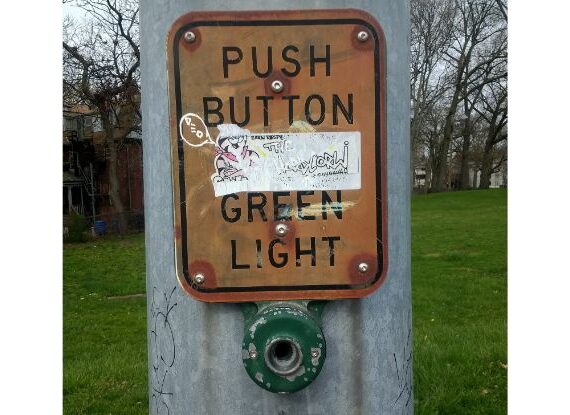 Tonight twelve people spoke in favor of the Hartford Civil Rights ordinance at the public hearing in City Hall; none spoke against it. Several organizations on board with this proposed ordinance include the American Civil Liberties Union, Council on American-Islamic Relations (Connecticut), National Lawyers Guild, and Bill of Rights Defense Committee.
Tonight twelve people spoke in favor of the Hartford Civil Rights ordinance at the public hearing in City Hall; none spoke against it. Several organizations on board with this proposed ordinance include the American Civil Liberties Union, Council on American-Islamic Relations (Connecticut), National Lawyers Guild, and Bill of Rights Defense Committee.
Although nobody spoke against this at the hearing, the ordinance received some dissent from those who felt it would weaken the Hartford Police Department’s ability to fight crime. Others spoke in opposition because they feared that homeland security would be threatened.
 Shahid Buttar — Executive Director of the Bill of Rights Defense Committee — told the three City Councilors present that “no one’s trying to tie the hands of the police department.” The ordinance, in fact, had been revised to include language found more suitable by HPD Chief Darryl Roberts, who was present for the hearing. During the hearing and before, at the press conference and rally on the steps of City Hall, several people told stories of how they had experienced or witnessed profiling. Mongi Dhaouadi — Executive Director of the Council on American-Islamic Relations CT — described several occasions on which Muslims had been “arrested under false pretense,” which he said wastes resources; one such case was of a Muslim cited for loitering while he was waiting for a bus. Mary Sanders, a resident of the South End, described how a few months ago she awoke to the sound of the SWAT team smashing windows of her neighbor’s house. She said that a young, black male who lived there had been tasered and spent a few days in the hospital as a result. During the raid, the police found a single marijuana joint in the home. Another resident spoke of the racial disparities of prisoners serving time for drug offenses. He pointed out that there are plenty of Trinity College students using illegal substances, but that drug busts are not happening on the campus. A West End resident said that she learned of racial profiling occurring in her neighborhood.
Shahid Buttar — Executive Director of the Bill of Rights Defense Committee — told the three City Councilors present that “no one’s trying to tie the hands of the police department.” The ordinance, in fact, had been revised to include language found more suitable by HPD Chief Darryl Roberts, who was present for the hearing. During the hearing and before, at the press conference and rally on the steps of City Hall, several people told stories of how they had experienced or witnessed profiling. Mongi Dhaouadi — Executive Director of the Council on American-Islamic Relations CT — described several occasions on which Muslims had been “arrested under false pretense,” which he said wastes resources; one such case was of a Muslim cited for loitering while he was waiting for a bus. Mary Sanders, a resident of the South End, described how a few months ago she awoke to the sound of the SWAT team smashing windows of her neighbor’s house. She said that a young, black male who lived there had been tasered and spent a few days in the hospital as a result. During the raid, the police found a single marijuana joint in the home. Another resident spoke of the racial disparities of prisoners serving time for drug offenses. He pointed out that there are plenty of Trinity College students using illegal substances, but that drug busts are not happening on the campus. A West End resident said that she learned of racial profiling occurring in her neighborhood.
The common thread through these and other stories shared was that racial, ethnic, and religious profiling occur here, and that it is not happening in just one section of the city. The message of the press conference was that this ordinance, if passed, would focus “police officers on their core public safety mission” and that it would help Police Chief Roberts to enforce the current state law against profiling, which supporters of this ordinance describe as being weak. Supporters insisted that the police would still be able to fight crime, but that they had to do so with “reasonable cause” on a “behavioral basis.”

Herb
Before anyone says “blacks commit more crime so of course they’re profiled” let met make the following observations:
– in the last decade or so the overwhelming majority of arrests have been for drug crimes
– whites and blacks use ( http://bit.ly/dzwsuB and http://bit.ly/bvKsoU ) and sell ( http://www.ncjrs.gov/pdffiles/167265.pdf ) drugs at about the same rates.
People’s Blog for the Constitution :: Hartford civil rights coalition gains momentum
[…] Dhaoudi from the Council of American-Islamic Relations of Connecticut drew attention to the sense of fear pervading Muslim communities, and observed the crucial importance of community trust that only transparency and accountability […]
Rayleen Nunez
I am so very proud of the City of my birth for having such outstanding citizens. I salute you twelve andhonor your commitment. Rayleen nee Gaudet Nunez. My mother was a Morissette